|
San Carlos was among the original towns of the Owens
Valley, situated east of the mighty Sierra Nevada. Gold was discovered
by a soldier from nearby Fort Independence, which lead to the creation
of San Carlos, Bend City and Chrysopolis by 1863. Increased pressure upon
Indians by the burgeoning population and cattle herds caused Indian unrest,
which they attempted to take out on the populations of San Carlos and
Bend City; which are situated about 3 miles from each other along the
eastern banks of the Owens River. San Carlos and Bend City also vied for
county seat status for the stillborn Coso County, which was eventually
realized in the form of Inyo County by 1866. By then, both San Carlos
and Bend City were pretty much deserted. Faint stone and adobe ruins prevail
at the site. David A. Wright -- Great Basin Research Submitted
by: David A. Wright
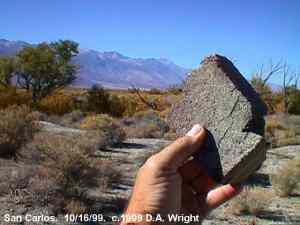
Brick from the old smelter at San Carlos. View is northwest toward the
Sierra Nevada. Trees indicate the abandoned course of the Owens River,
altered about a half mile west due to the 1872 Owens Valley earthquake,
estimated to be 9+ magnitude by todays standards. The quake was felt from
the coast to Salt Lake City, from the Mexican border into Oregon. October
16, 1999.
Courtesy David A. Wright
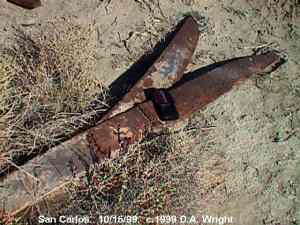
Heavy iron pieces from the smelter area of San Carlos. My microcassette
recorder give scale, but these pieces were almost too heavy to lift. October
16, 1999.
Courtesy David A. Wright
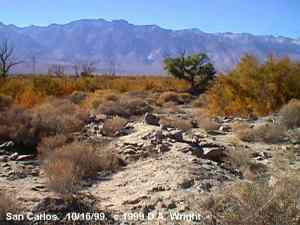
Smelter area of San Carlos. View just north of west to the Sierra Nevada
across Owens Valley. October 16, 1999.
Courtesy David A. Wright
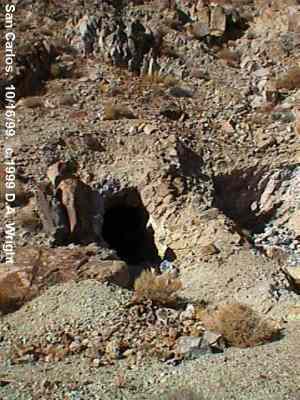
One of the mines at San Carlos, in the foot of the Inyo Range. October
16, 1999.
Courtesy David A. Wright
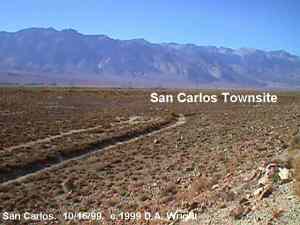
View from a San Carlos mine northwest over the townsite of San Carlos.
Lateral roadbed at the end of the road going away from camera is the former
grade of the narrow gauge Carson & Colorado Railroad, built in 1882 and
abandoned in 1960. October 16, 1999.
Courtesy David A. Wright
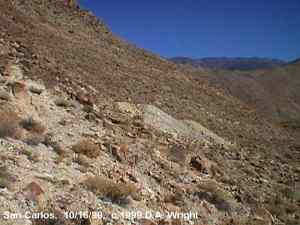
San Carlos mines. October 16, 1999.
Courtesy David A. Wright
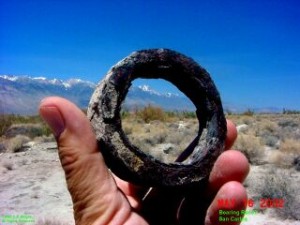
Bearing race. D.A. Wright photo.
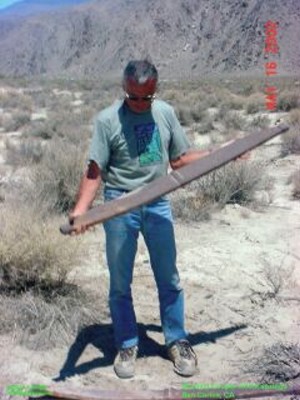
My friend Graham holds up what appears to be some sort of a leaf spring.
D.A. Wright photo.
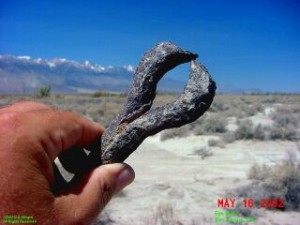
Eye bolt. D.A. Wright photo.
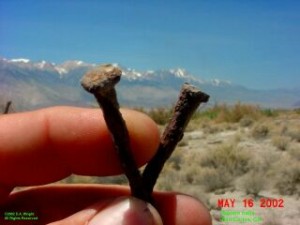
Square nails. D.A. Wright photo.
|
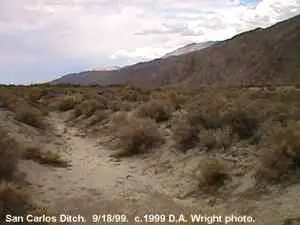
San Carlos, Sept 1999
Courtesy David A. Wright
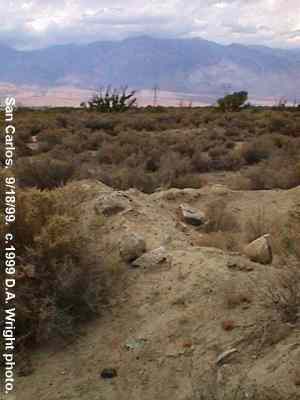
San Carlos, Sept 1999
Courtesy David A. Wright
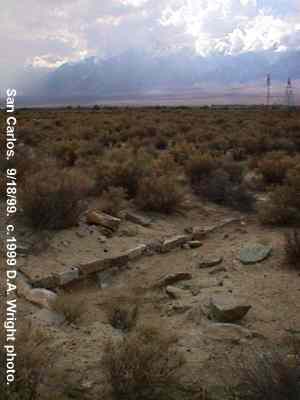
San Carlos, Sept 1999
Courtesy David A. Wright
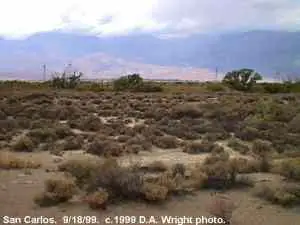
San Carlos, Sept 1999
Courtesy David A. Wright
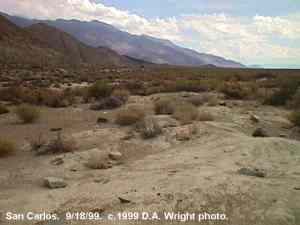
San Carlos, Sept 1999
Courtesy David A. Wright
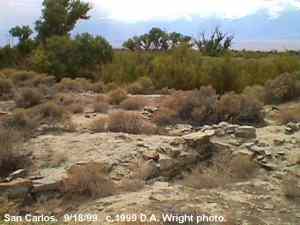
San Carlos, Sept 1999
Courtesy David A. Wright
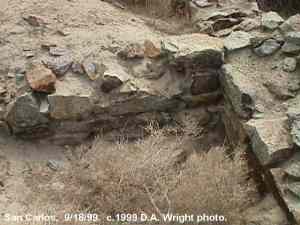
San Carlos, Sept 1999
Courtesy David A. Wright
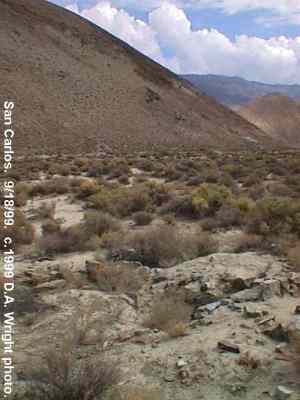
San Carlos, Sept 1999
Courtesy David A. Wright
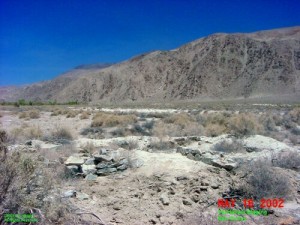
I have found evidence of recent vandalism at San Carlos since my last
visit. Every building site had been dug in a large square around each
ruin. Many foundation stones were broken apart and scattered. Consultation
with governmental agencies showed that none of them had sanctioned an
approved archeological or other study. The size of the impact leads to
more than one individual over time had marred San Carlos. D.A. Wright
photo.
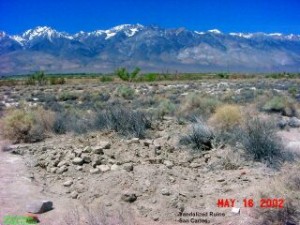 More San Carlos
vandalism. D.A. Wright photo. More San Carlos
vandalism. D.A. Wright photo.
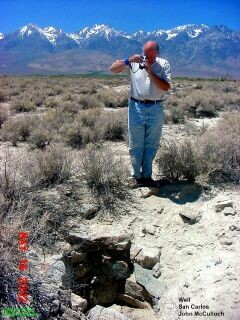
My friend John photographs a well.
|